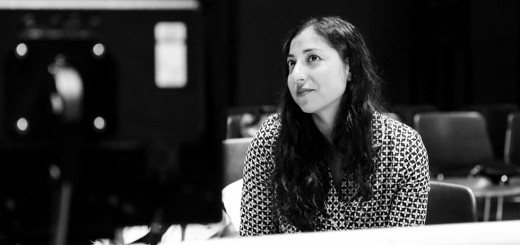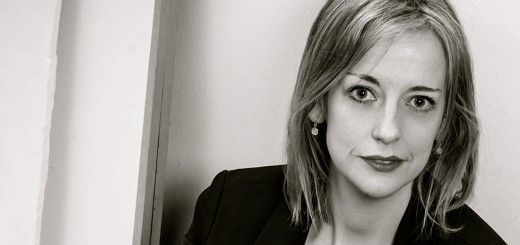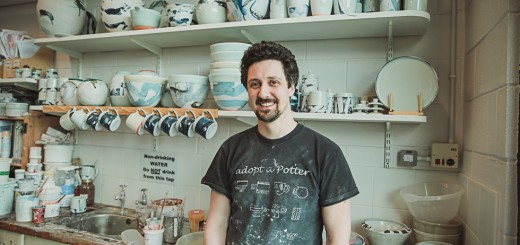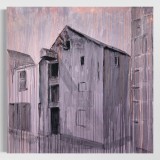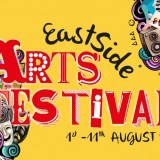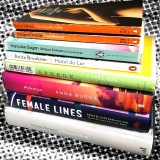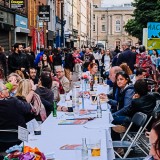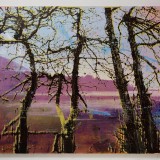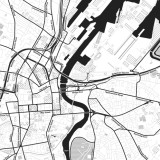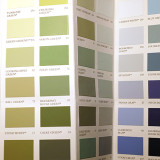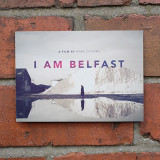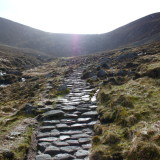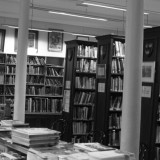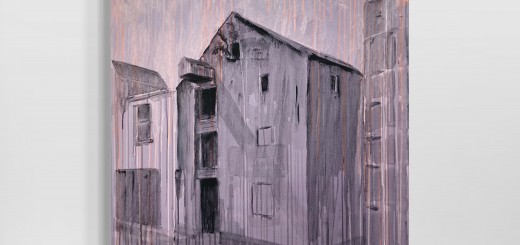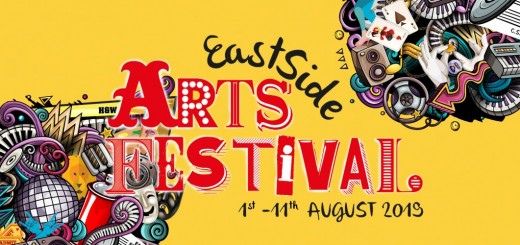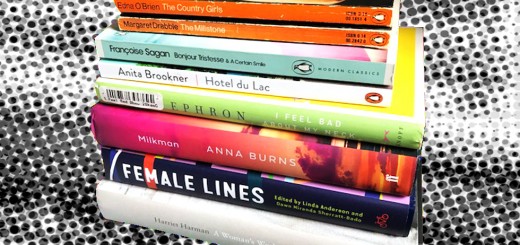A Belfast Blog meets: Peggy Hughes
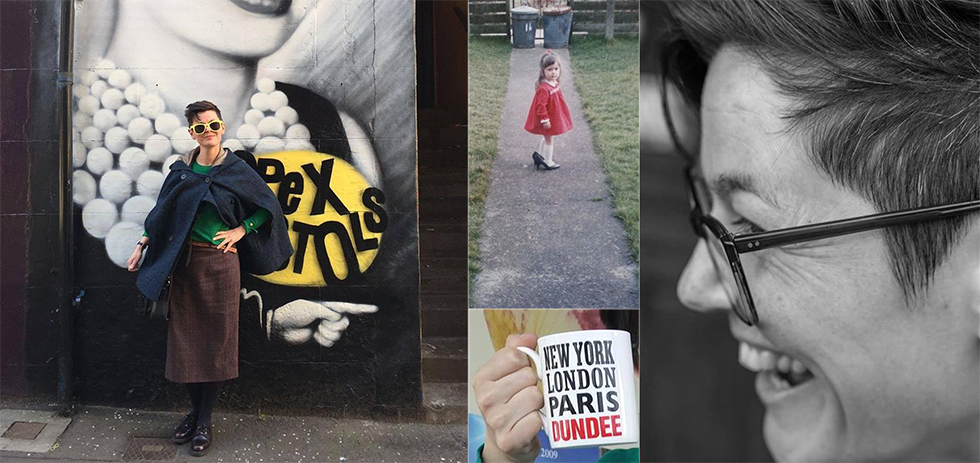
A Belfast Blog recently asked to speak to Peggy Hughes. Peggy is currently Manager of Literary Dundee, an initiative that celebrates the creative talent within the University of Dundee and brings together writers and readers via a spectrum of events and activities including the annual Dundee Literary Festival (19th-23rd October 2016) and the Dundee International Book Prize. Peggy grew up in Northern Ireland, leaving to study English Literature at the University of St Andrews, and Scotland is where she stayed. We were keen to more about what Peggy is up to now, as well any of her memories, insights and perspectives on Belfast and Northern Ireland.
Peggy Hughes, how would you describe Belfast, to someone who has never visited?
In a recent edition of Granta – Issue 135, the New Irish Writing edition – Kevin Barry has a storming essay called ‘The Raingod’s Green, Dark as Passion’ which personifies his adopted Cork. Cork is ‘fairly cool, usually quite relaxed, and head over heels in love with himself.’ I suppose then I might describe Belfast as terrific craic, an awful oul one for the gossip with a terrible temper at her, but I only know her at a distance and through legend, from family funerals, say. I might scrabble around and say Belfast, though smaller, has the texture and flavour of Glasgow, and isn’t it funny that I should have to compare the capital city of my own country to a city in my adopted one? Recently, when a Scottish friend who had never visited asked where she should eat, I simply had no idea where to recommend (apart from Mary’s broth at Bookfinders which is the real deal); I could blame my 14 years away for that, but in truth I’ve never known Belfast well.
My friend had just passed her driving test and we got very lost in the Short Strand, which seemed terrifying to a bunch of tame 17 year olds who only knew about the Short Strand from the TV.
I grew up in Larne, a small harbour town 20 miles to the north east and left for University in Scotland when I was 18. Growing up, we would visit Belfast infrequently (my people are a Ballymena / Ballyclare people, so our visiting played out there). We’d go shopping at Christmas. Town mice! From the age of 12 I played football every Sunday at Orangefield in East Belfast, but we’d go straight there and straight away again. Later on I went with friends very occasionally, to go to the shops, or to the cinema, or – memorably – to a Van Morrison concert at the Waterfront. My friend had just passed her driving test and we got very lost in the Short Strand, which seemed terrifying to a bunch of tame 17 year olds who only knew about the Short Strand from the TV.
Even now when I go there I have specific places I go, I’m not there with my eyes properly open. I would then describe Belfast in the minute psychogeography of shops and pubs I like, the skyline of cranes, the City Hall and the Linenhall Library, Royal Avenue. Mine is a tourist’s Belfast. Now I’m an adult I visit on adult terms – for the brilliant book festival, for instance. But if you visit NI infrequently, the liberty to explore is curtailed – family lockdown and visiting the kin prevails! One wishes to feel a sense of ownership over a place, and Belfast isn’t somewhere I’ve taken the opportunity to know, nor offered the opportunity to be known, which causes me not a little sadness. Watching Mark Cousins’ wonderful film I Am Belfast recently and mulling on this piece has made me reflect upon my own alienness from Belfast, and made me want to get to know it and have the sort of pride for a place that comes from a deep knowing. Which is a very longwinded way of saying that I wish Belfast and I were on closer terms (and then I could actually answer your question).
If there’s one thing somebody visiting Belfast/NI should see/do/read this year – what would it/they be?
In my line of work I would say this but I’d encourage visitors to get acquainted with Belfast through its rich literature and literary history. There’s a fantastic ‘Literary Belfast’ app for the curious traveller inviting you to navigate the streets ‘where our finest writers lived, walked and worked’. There’s a Belfast Literary Tour, a guide, all sorts of initiatives to help people explore Belfast’s literary largesse. I’d urge a visit to the Belfast Book Festival, based at the Crescent Arts Centre in leafy University Road, with events happening across the city in a variety of venues. I never miss a good prough in Bookfinders and No Alibis and have enjoyed a pint or three in the John Hewitt. In terms of books, I’m allowing myself three recommendations: Robert McLiam Wilson’s Eureka Street, which placed me so firmly in Belfast that I was truly shocked to look up from it and out a train window and find myself in Glasgow. Glenn Patterson’s Here’s Me Here, a charming and intelligent collection of musings on life and life on this planet in general and life in Belfast and NI in particular; Glenn Patterson for Stormont Writer-in-Residence! And finally Lucy Caldwell’s short story collection Multitudes: to mention just one story – ‘Here We Are’, is set in Belfast in the 90s and is about two schoolgirls who fall in love and it’s so powerful it plucked my heart from my chest and threw it across the room.
My favourite place in Belfast is probably sitting on my friend Carol’s couch and having a huge blab but it isn’t that the way, that place is your people in that place? By the same token then, I’d be in trouble if I didn’t mention the mother’s kitchen (recently done up, by the way)
Can you give us any perspectives on this city’s literary culture and tradition?
Oh it’s busting a gut with literary culture. I suppose I’ve sort of answered this question in my answer above, but I’ll just drop all these names here – Seamus Heaney, Michael Longley, Paul Muldoon, Miriam Gamble, Jan Carson, Glenn Patterson, Frank Ormsby, Sinead Morrissey, Leontia Flynn, Owen McCafferty, Bernard MacLaverty and Ciaran Carson – and let them speak for themselves.
Do you have a favourite place in Belfast/NI?
My favourite place in Belfast is probably sitting on my friend Carol’s couch and having a huge blab but it isn’t that the way, that place is your people in that place? By the same token then, I’d be in trouble if I didn’t mention the mother’s kitchen (recently done up, by the way) and the faithful pot of stew prepared, fatted calf-style, for us coming in from the harbour. Elsewhere I love the view from the top of Torr Head and sitting with a Guinness in the Londonderry Arms in Carnlough and walking along Whiterocks Beach in Portrush, where we holidayed in a second cousin of the grandfather’s bungalow every year of my childhood for years.
Where do you consider home…
It’s the oddest thing, but ‘going home’ is still what I say when I’m returning to NI, though I’ve lived nearly half my life away and own a flat with my name and my other half’s name on a brass name plate on the top floor of a Dundee tenement. I wonder if that’s particular to Northern Irish people. I wonder if I haven’t in me an awful lot of the Irish boomerang that never returns but sings loads of songs about how much it wants to… That said, Scotland feels like home now, too. Norman MacCaig captured that split personality in his poem ‘Assynt and Edinburgh’ – ‘Two places I belong to as though I was born / in both of them.’
… and why?
When the Parker Knoll armchair made the trip over from my wee old bedroom in Larne to our then-new house two Marches ago, that felt like ‘this is home, now, here’s all our stuff around us, and the books unpacked’. To give you the narrative about that armchair – it transferred to me from my mother’s aunt Maureen (who would’ve started a row in an empty house), probably because the tweed upholstery had seen much happier days and no-one else wanted it. But oh I wanted it, and did all the revision for my school exams in it, obstinately wedged in between the end of my bed and the desk – once you were in position it was very difficult to lever yourself back out. So when that chair made the trip and took up residence in the corner of our living room it brought home in with it.
I have in spades what the Portuguese call saudade, and what the N Irish might call ‘your bladder is close to your eye’
Are there any aspects of your upbringing and experience of Northern Ireland that you think influence you today?
In every way, far too many to mention. Isn’t that the case for anyone with their particular upbringing, whatever their circumstances happen to be? A working class Northern Irish upbringing stays with you completely, and the oddities and complexities in your view of the world from NI do too, even if every exam you pass takes you further away in travel and in experience from your neighbourhood, to paraphrase cultural critic Richard Hoggart mentioned recently in Lynsey Hanley’s Guardian piece about ‘becoming middle class’. My accent has softened, but only a little and, suspiciously, more to my mother’s tuning fork than anyone else’s. I’d say that a grand appetite for talking is particular to trying to get a word in around my two world-beating grandmothers, and their fierce sisters and friends, and a love of stories – those small familiar, family stories – comes from those same women talking in kitchens. I have in spades what the Portuguese call saudade, and what the N Irish might call ‘your bladder is close to your eye’ but I certainly didn’t lick that off a stone, either.
What are you working on right now?
My current preoccupation is with programming this year’s Dundee Literary Festival (19th-23rd October). The festival is ten years old this year, so I’m planning a 5 day celebration of festivals past, as well as toasting the future – emerging writers, future of books and reading. Northern Irish visitors would feel especially at home: there’s so many of us here that Tesco has an aisle with all the greats – Club Orange, Kimberley biscuits, Tayto (of course…)

